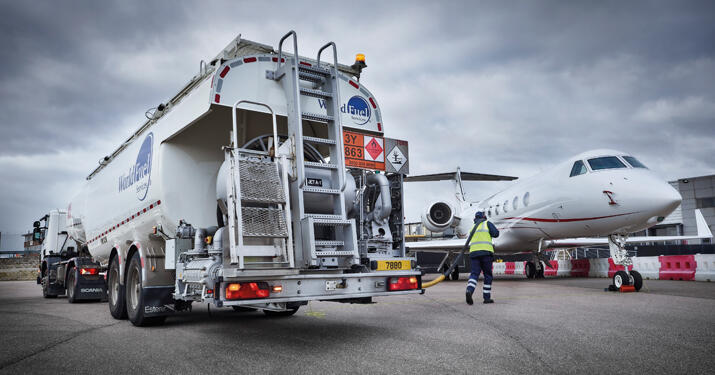The Future of Fuel Management in Aviation: Trends and Innovations
The aviation industry is constantly evolving, and fuel management plays a critical role in ensuring the efficiency and sustainability of flights. As technology advances and environmental concerns grow, there are significant trends and innovations shaping the future of fuel management in aviation.

Key Trends and Innovations:
- Sustainable Aviation Fuels (SAF):
- Reducing carbon emissions: SAFs are fuels produced from sustainable sources, such as waste oils, agricultural residues, and forestry by-products. They offer a significant reduction in carbon emissions compared to traditional jet fuel.
- Technological advancements: Research and development efforts are focused on improving the production efficiency and cost-effectiveness of SAFs.
- Industry partnerships: Collaboration between airlines, fuel suppliers, and technology companies is essential for the widespread adoption of SAFs.
- Fuel Efficiency Technologies:
- Aircraft design improvements: Innovations in aircraft design, such as aerodynamic enhancements and weight reduction, can improve fuel efficiency.
- Engine technologies: Advancements in engine design, including more efficient turbines and materials, can reduce fuel consumption.
- Operational optimization: Techniques like continuous descent approach and optimized flight paths can help minimize fuel usage.
- Fuel Management Systems:
- Advanced analytics: Real-time data analysis and predictive modeling can optimize fuel consumption and reduce waste.
- Automation: Automated fuel management systems can improve accuracy and efficiency.
- Integration with other systems: Integrating fuel management systems with flight planning, navigation, and performance monitoring systems can enhance overall efficiency.
- Fuel Infrastructure:
- Sustainable fuel storage: Developing sustainable and efficient fuel storage facilities is crucial for the widespread adoption of SAFs.
- Refueling infrastructure: Ensuring that airports and refueling stations have the necessary infrastructure to handle SAFs is essential.
- Regulatory Framework:
- Policy support: Governments and regulatory bodies play a vital role in promoting the adoption of sustainable aviation fuels and technologies.
- Carbon pricing: Implementing carbon pricing mechanisms can incentivize airlines to reduce their carbon footprint.
Challenges and Opportunities:
- Cost: SAFs are currently more expensive than traditional jet fuel. Reducing production costs is essential for widespread adoption.
- Supply chain: Ensuring a reliable and sustainable supply of SAFs is a challenge.
- Infrastructure: Investing in new infrastructure for SAF production, storage, and refueling is necessary.
- Regulatory framework: Developing clear and supportive regulations is crucial for the growth of the sustainable aviation fuels market.
As the aviation industry continues to evolve, fuel management will play a crucial role in ensuring both sustainability and efficiency. By embracing innovations in sustainable fuels, fuel efficiency technologies, and fuel management systems, the industry can contribute to a more sustainable future.
Jetmate offers a best services in fuel management you can learn more about them now from here






